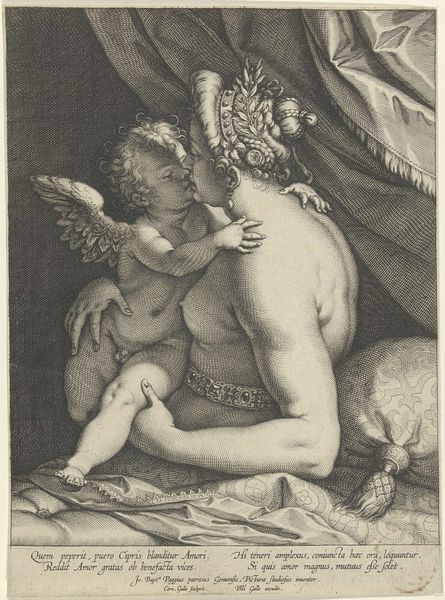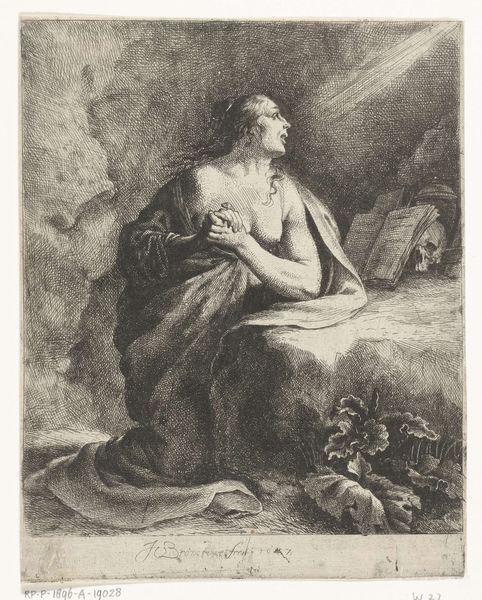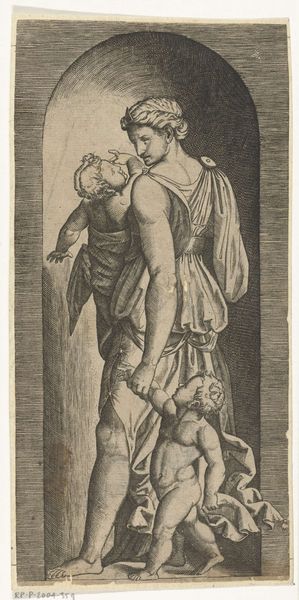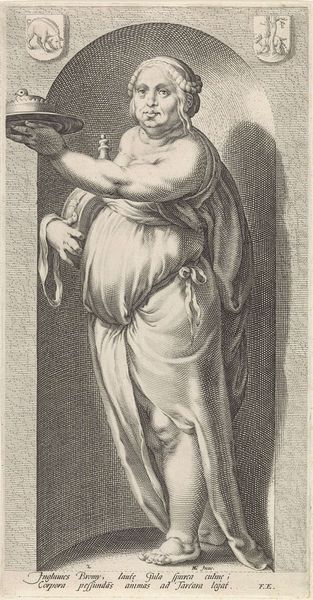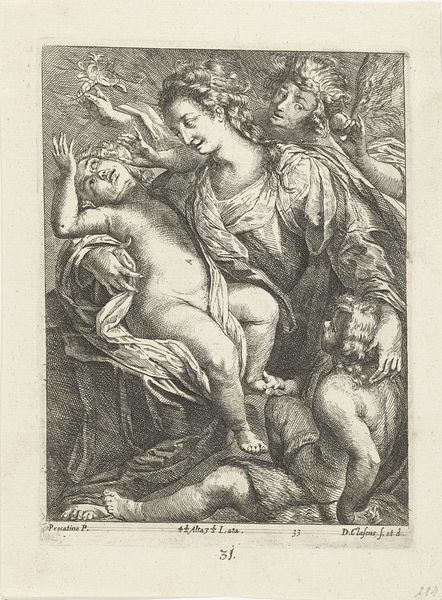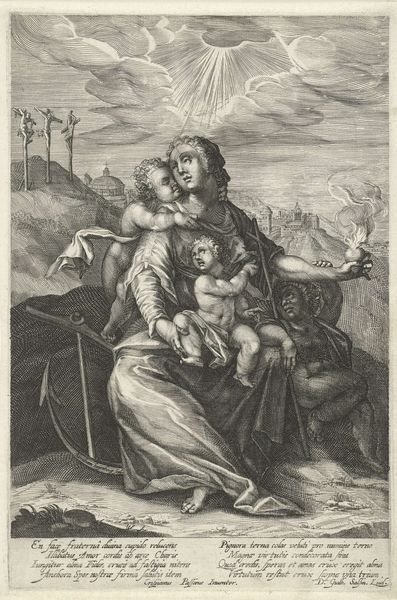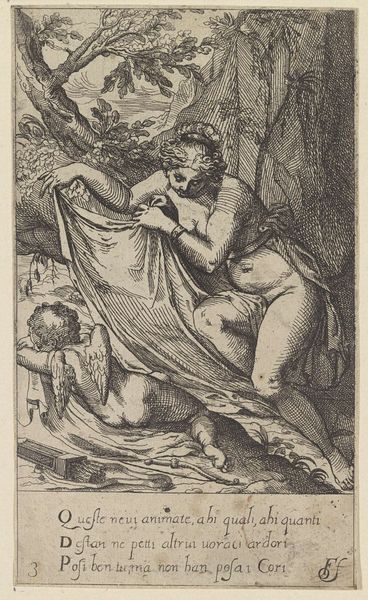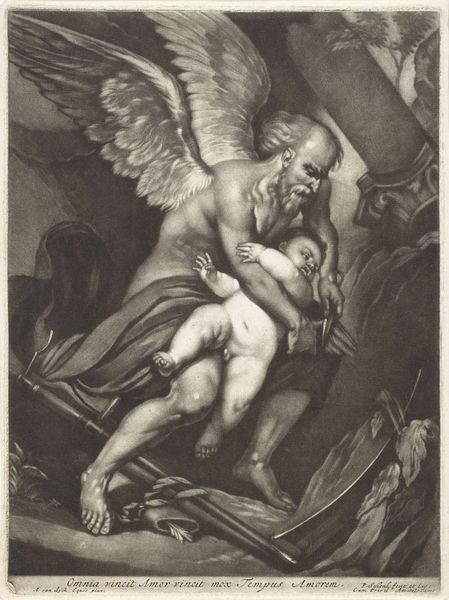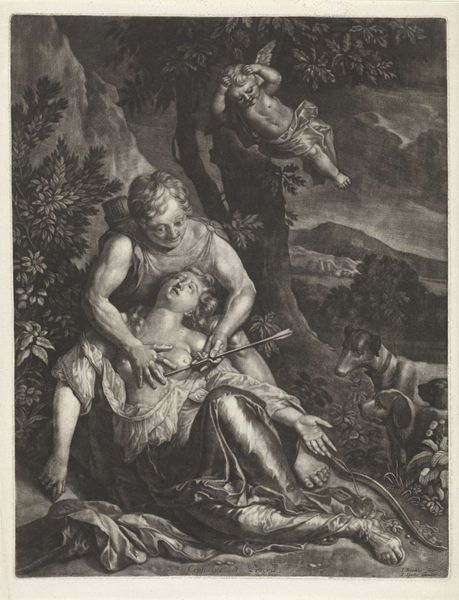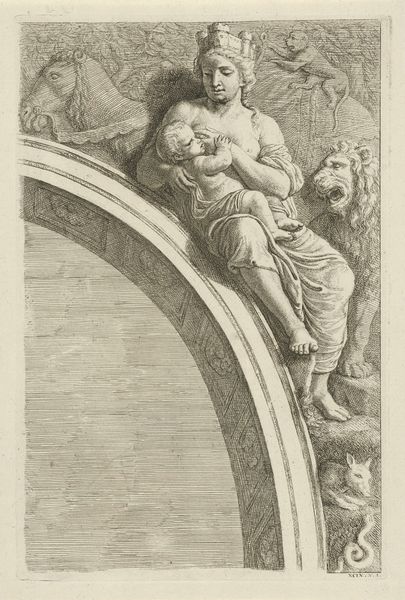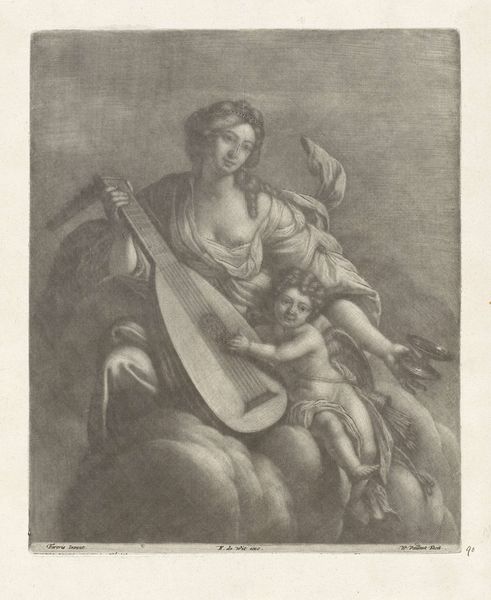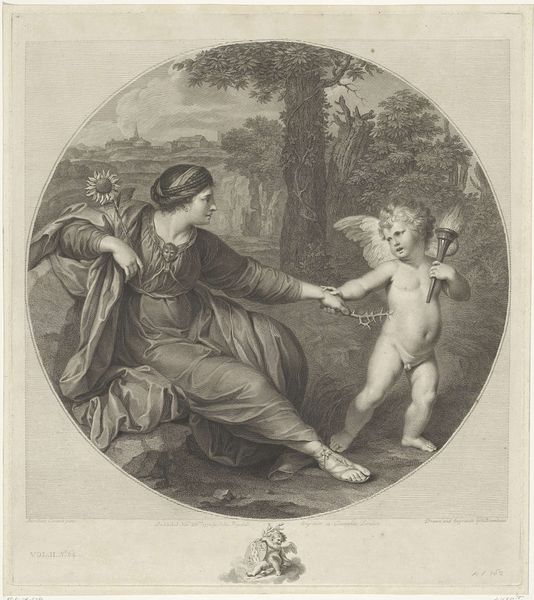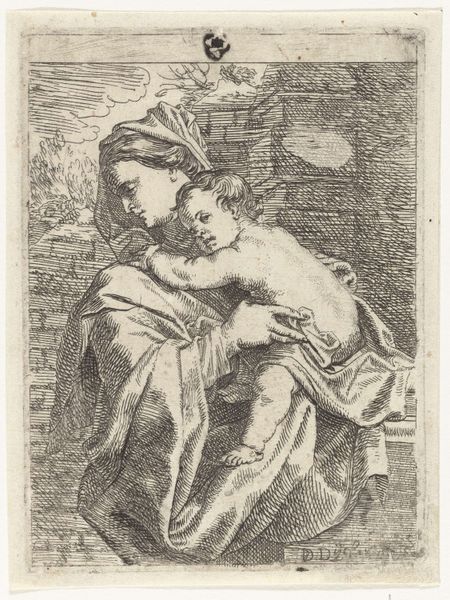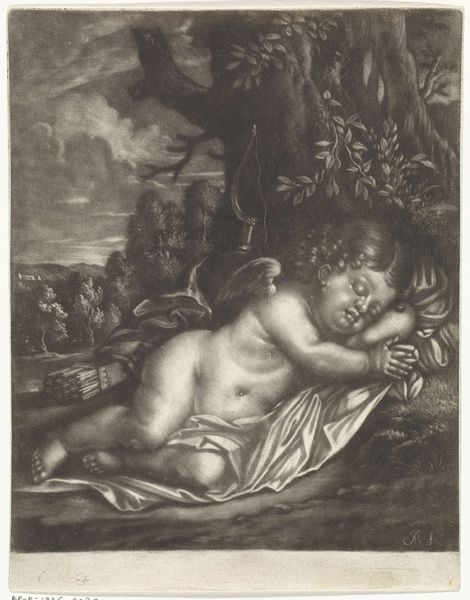
drawing, pencil
#
portrait
#
drawing
#
figuration
#
pencil drawing
#
pencil
#
symbolism
Dimensions: height 251 mm, width 155 mm
Copyright: Rijks Museum: Open Domain
August Allebé made this print of Medea in the Netherlands at the end of the 19th century, using etching. Medea is an ancient Greek tragedy by Euripides about a woman scorned, who kills her own children as revenge against her husband Jason. Allebé's image captures Medea in a moment of tragic deliberation. She is holding one of her children close, while the other clutches her leg. The dark tones and shadowy atmosphere create a sense of foreboding, emphasizing the grim nature of her intentions. The Netherlands in the late 1800s was a society undergoing rapid modernization. Allebé was part of a generation of artists who questioned traditional values and explored complex psychological themes. As an instructor at the Rijksakademie, his own institutional role was central to his development. Allebé's Medea reflects the changing attitudes towards women, motherhood, and morality at this time. To understand this work better, one might research the history of infanticide in Europe, or look at the reception of Greek tragedy in the 19th century. Art is always a product of its time and place.
Comments
No comments
Be the first to comment and join the conversation on the ultimate creative platform.
